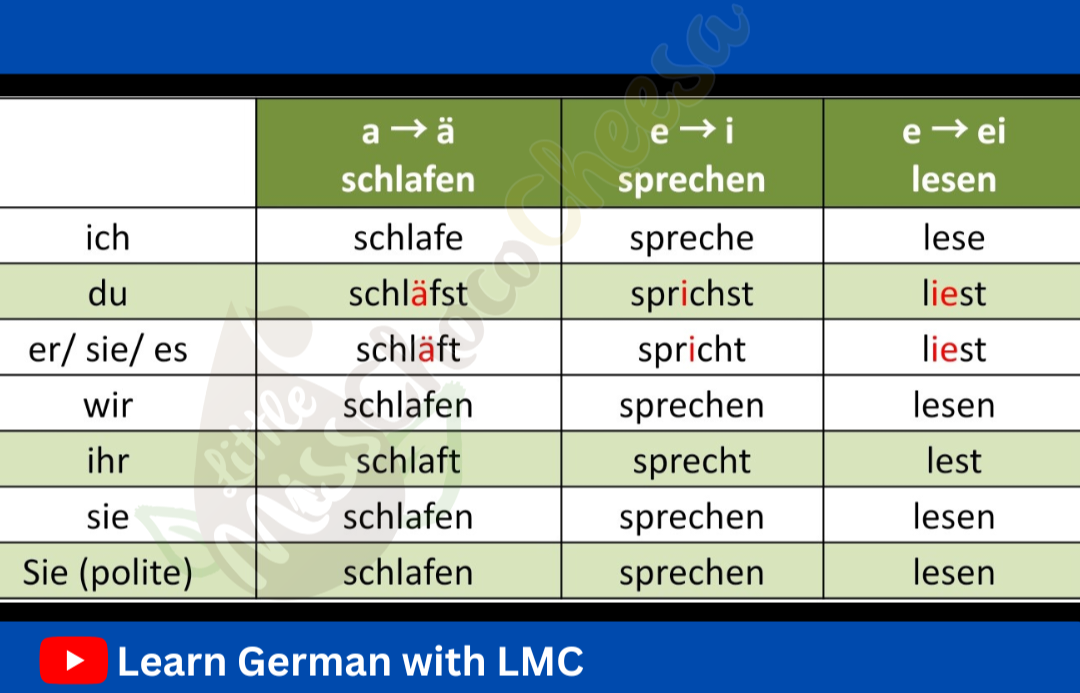Learn German A1 | Irregular Verbs
Irregular verbs is something you should learn to pass the German A1 exam.
Let us now talk about "unregelmäßige Verben"(irregular verbs). Whilst regular verbs follow a more predictble pattern, irregular verbs undergo different changes and may follow different patterns.
You will need to memorize which verbs you learn are irregular, but most of them have the same present tense endings as regular verbs.
Let's review the present tense endings by looking at the verb "arbeiten" (to work) below:
ich arbeite
du arbeitest
er/sie/es arbeitet
wir arbeiten
ihr arbeitet
sie/Sie arbeiten
The only difference is that for irregular verbs, the vowels in the stem change for the "du" and "er/sie/es" forms. Look at the example below to see the changes in the irregular verb "fahren" (to drive):
For example:
Verb Stem: fahr-
ich fahre
du fährst
er/sie/es fährt
wir fahren
ihr fahrt
sie/Sie fahren
Almost always, the vowel changes as seen below:
a → ä, as in fahren (to drive)
au → äu, as in laufen (to walk)
o → ö, as in stoßen (to bump)
e (long)→ ie, as in sehen (to see)
e (short)→ i, as in helfen (to help)
Remember auxilliary verbs from the previous lessons on verbs:
Auxiliary verbs are an integral part of the German language. The three auxiliary verbs are irregular verbs, and they are also the most common irregular verbs you would encounter in German A1.
sein (to be)
haben (to have)
werden (to become)
We have already seen that when regular verbs are conjugated, the endings change. For irregular verbs, it is quite different. We do not just change the endings, but sometimes we also change the spelling of the stem verb, or totally change the stem verb. We have seen this with the verb sein. Below you can see the conjugation of the verb sein in the present tense.
ich bin
du bist
er/sie/es ist
wir sind
sie/Sie sind
ihr seid
Let us have a look at the conjugation of the verb haben in the present tense.
ich habe
du hast
er/sie/es hat
wir haben
sie/Sie haben
ihr habt
Next let us look at the conjugation of the verb werden in the present tense. Look at the spelling changes.
ich werden
du wirst
er/sie/es wird
wir werden
sie/Sie werden
ihr werdet
We will encounter more irregular verbs in the next lessons. What is important to learn and memorize now are the three auxiliary verbs we saw above.
In the next lesson, we are going to learn plural forms of nouns.
To go back to the lessons list, click here.



0 Comments